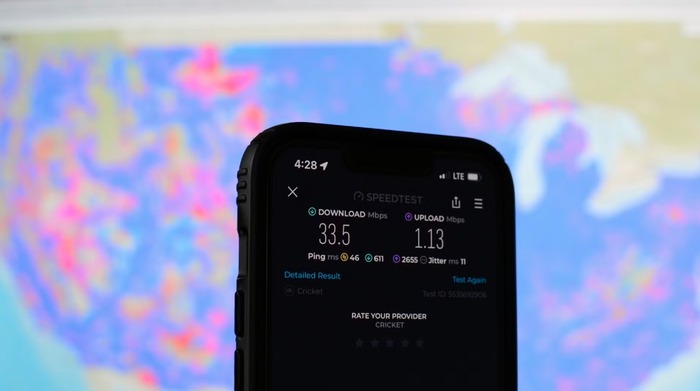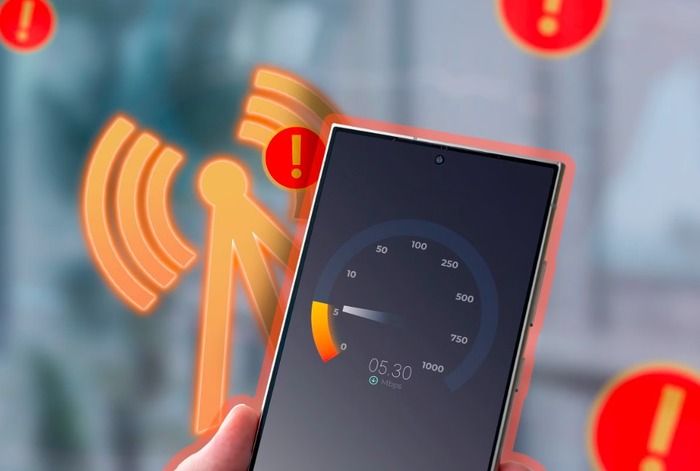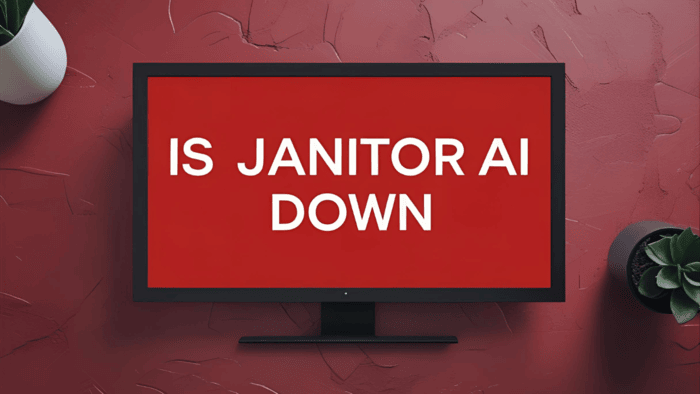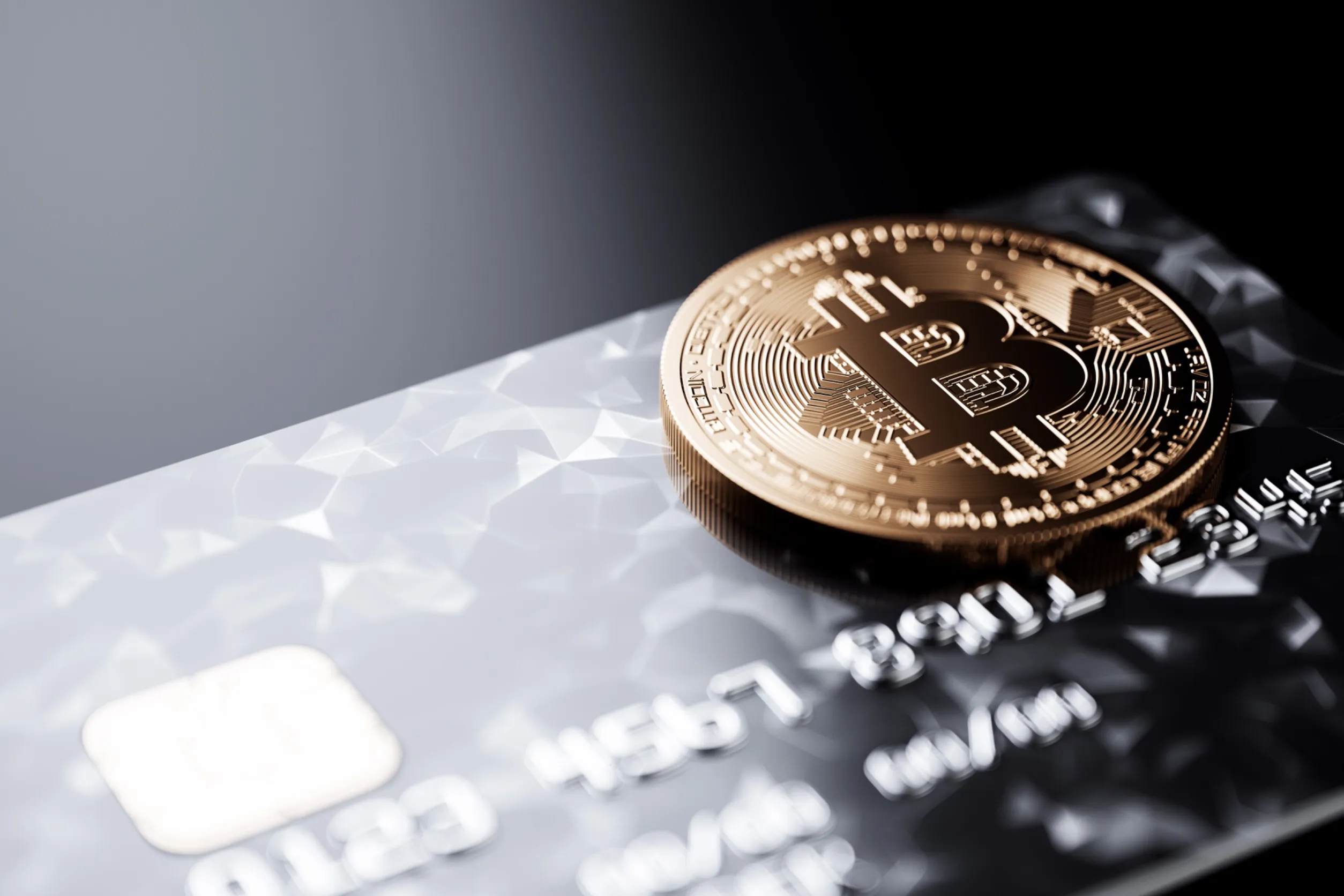A sluggish internet connection on your smartphone can be incredibly annoying, especially when you’re trying to browse or stream. Several factors could be responsible if your mobile data isn’t performing well. This manual will explain how to test your internet health and enhance it for a smoother experience.
What Causes Slow Mobile Data?
If your phone struggles with slow data, it might be due to a weak signal, excessive traffic on the network, or too many apps running simultaneously. Here are some common reasons for reduced mobile internet performance:
- Weak signal in your current location
- Overloaded network due to multiple users
- Excessive background apps or open browser tabs
- Corrupt or outdated cache files
- Shared mobile hotspot consuming bandwidth
- Incorrect network configurations
- Presence of harmful software on your device
Checking Your Signal Strength
A weak signal significantly impacts data speed. Moving to an area with better reception or switching to a Wi-Fi connection might help. You can check signal strength using decibel-milliwatts (dBm), which indicate reception quality:
| Signal Strength (dBm) | Quality |
| -50 to -79 | Excellent |
| -80 to -89 | Good |
| -90 to -107 | Average |
| -108 to -114 | Weak |
| < -120 | No Signal |
These values vary based on service providers.
How to Check on Android:
- Open Settings and go to About Phone.
- Tap Status, then Network > SIM.
- Some devices include a diagnostic tool in the Mobile Networks section.
How to Check on iPhone:
- Open the Phone app.
- Dial *3001#12345#* and press call.
- Select LTE or Serving Cell Measurements to view details.
Network Congestion Issues
A slow connection may result from an overloaded network, especially during peak hours. If your home internet is sluggish, multiple devices could use bandwidth simultaneously. Access your router settings through its IP address to optimize usage and enable Quality of Service (QoS). This prioritizes essential tasks like video conferencing.
Background Apps Consuming Data
Having multiple applications running in the background can strain your connection. Close unnecessary apps and browser tabs to free up bandwidth.
Cache-Related Slowdowns
Your browser stores data to load websites faster. However, outdated or corrupt files can slow things down. Clear the cache regularly to improve performance.
Signs That You Need to Clear Cache:
- Web pages loading incompletely
- Incorrectly formatted content
- Misplaced images
- Login difficulties
Mobile Hotspot Usage
Using your device as a hotspot can slow your connection, especially if multiple users are connected. Ensure your hotspot is not unintentionally active. Look for the hotspot icon on the status bar on Android to check for connected devices.
Resetting Network Preferences
Misconfigured or outdated settings can affect data speed. Resetting network preferences might help restore performance.
Possible Malware Infection
Harmful software on your phone can slow internet speed by using data in the background. Spyware may be transmitting information without your knowledge. Running a security scan can detect and remove threats.
Why Is 5G Sometimes Slow?
Although 5G is designed for high-speed connectivity, physical barriers like walls can disrupt its short-range signals. Additionally, 5G infrastructure is still expanding, leading to inconsistent coverage.
Ways to Enhance Mobile Data Speed
If you experience slow internet regularly, try these solutions:
- Restart your smartphone
- Enable and disable airplane mode
- Reset network configurations
- Remove and reinsert your SIM card
- Close unused apps consuming data
- Disable background applications
- Pause resource-intensive applications
- Secure your hotspot connection
- Shut down unnecessary browser tabs
- Use an ad-blocking tool
- Clear browser cache
- Activate reader mode in your browser
- Switch to a Wi-Fi network if possible
- Run a malware scan
Restart Your Device
Rebooting your phone can help fix slow internet performance.
How to Reboot:
- Android: Press the power key, then select “Reboot” or “Shut Down.” If switched off, wait briefly before turning it back on.
- iPhone: Press and hold the power key, slide to shut down, pause for a moment, then press the power key again to power it back on.
Toggle Airplane Mode
Switching airplane mode on and off can refresh your network signal.
Steps:
- Android: Open Quick Settings, tap the airplane symbol to activate, wait a moment, and switch it off.
- iPhone: Open Control Center, tap the airplane symbol to enable, then tap it again to disable.
Restore Network Settings
If your connection remains sluggish, resetting network preferences might resolve the issue. Keep in mind this will erase saved Wi-Fi credentials.
Instructions:
- Android: Go to Settings > System > Reset options > Reset Wi-Fi, mobile & Bluetooth > Confirm.
- iPhone: Go to Settings > General > Transfer or Reset iPhone > Reset > Reset Network Settings > Enter passcode > Confirm.
Take Out and Reinsert the SIM Card
Removing and reinserting the SIM card can help reestablish a stable network. Try using the SIM on another phone before reinserting it.
Monitor High-Data Usage Apps
Some applications consume a large amount of data, impacting performance. Restricting them may improve speeds.
How to Manage Data-Intensive Apps:
- Android: Go to Settings > Data usage > Identify and limit apps using excessive data.
- iPhone: Go to Settings > Cellular > Check data consumption and disable unnecessary apps.
Limit Background Data Consumption
Apps running in the background can slow down connectivity.
How to Disable Background Data:
- Android: Settings > Apps > Choose an app > Mobile data > Turn off background data. Alternatively, enable Data Saver under Data Usage.
- iPhone: Settings > General > Background App Refresh > Turn off for specific or all apps.
Protect Your Mobile Hotspot
An unsecured hotspot may be used by others, reducing your bandwidth.
Securing Your Hotspot:
- Android: Press and hold the hotspot icon in Quick Settings > Set a strong passcode & modify SSID.
- iPhone: Go to Settings > Personal Hotspot > Change the password and turn off “Allow Others to Join.”
Close Extra Apps and Browser Tabs
Having too many open applications or tabs may reduce browsing speed.
Closing Apps:
- Android: Press the Recent Apps button and swipe away unnecessary apps.
- iPhone: Swipe up from the bottom of the screen, then close unused applications.
Closing Tabs:
- Chrome: Tap the square button and shut down extra tabs.
- Safari: Tap the tabs icon, swipe left on a tab to close it, or long-press the tab switcher to close all tabs.
Use an Ad Blocker
Advertisements consume bandwidth and slow down page loading times. Using a browser with built-in ad blocking can enhance speeds.
Delete Browser Cache
Accumulated cache files may slow down browsing. Clearing them can boost performance.
How to Clear Cache:
- Chrome (Android): Open Chrome > Menu (⋮) > History > Clear browsing data > Choose ‘All time’ > Clear data.
- Safari (iPhone): Settings > Safari > Clear History and Website Data > Confirm.
Enable Reader Mode
Reader Mode removes unnecessary content, helping web pages load more quickly.
Activating Reader Mode:
- Chrome (Android): Settings > Accessibility > Enable ‘Simplified view for web pages.’
- Safari (iPhone): Settings > Safari > Reader > Activate for all sites.
Connect to Wi-Fi When Available
If mobile data is running slowly, switching to Wi-Fi can improve connectivity. Exercise caution on public networks and use a VPN for security.
Scan for Malware
Malicious software can interfere with connection speeds.
Steps to Improve Security and Speed:
- Restart Device: Refresh performance.
- Update Software: Keep the system and apps up to date.
- Clear Cache: Remove stored browser and app cache.
- Uninstall Suspicious Apps: Delete unknown or unnecessary apps.
- Factory Reset (Last Option): Back up files, then reset your phone.
Extra Tips to Enhance Internet Speed
- Try an alternative browser.
- Ensure your device’s software is updated.
- Check if your service provider is experiencing an outage.
- Verify that you haven’t reached your data cap.
- Move to a location with better reception.
- Disable Low Data or Data Saver mode if it is unnecessary.
If these solutions don’t work, consider backing up your data and performing a factory reset.
Following these steps can significantly improve your mobile internet experience.





